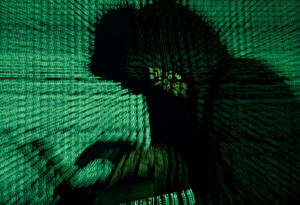|
South Korean and U.S. forces will on Monday begin 11-day Ulchi
Freedom Guardian summer exercises to improve their ability to
respond to North Korea's evolving nuclear and missile threats.
North Korea objects to such exercises saying they are
preparations by the U.S. and its South Korean ally for an
invasion of it.
The hackers were believed to be linked to a North Korean group
that researchers call Kimsuky, and they carried out their hack
via emails to South Korean contractors working at the South
Korea-U.S. combined exercise war simulation centre, the Gyeonggi
Nambu Provincial Police Agency said in a statement.
"It was confirmed that military-related information was not
stolen," police said in a statement on Sunday.
North Korea has previously denied any role in cyberattacks.
The Kimsuky hackers has long used “spear-phishing” emails that
trick targets into giving up passwords or clicking attachments
or links that load malware, according to researchers.
South Korean police and the U.S. military conducted a joint
investigation and found the IP address used in the hacking
attempt matched one identified in a 2014 hack against South
Korea's nuclear reactor operator, police said.
At that time, South Korea accused North Korea of being behind
that cyberattack.
(Reporting by Ju-min Park; Editing by Josh Smith, Robert Birsel)
[© 2023 Thomson Reuters. All rights
reserved.] Copyright 2022 Reuters. All rights reserved. This material may not be published,
broadcast, rewritten or redistributed.
Thompson Reuters is solely responsible for this content.

|
|




